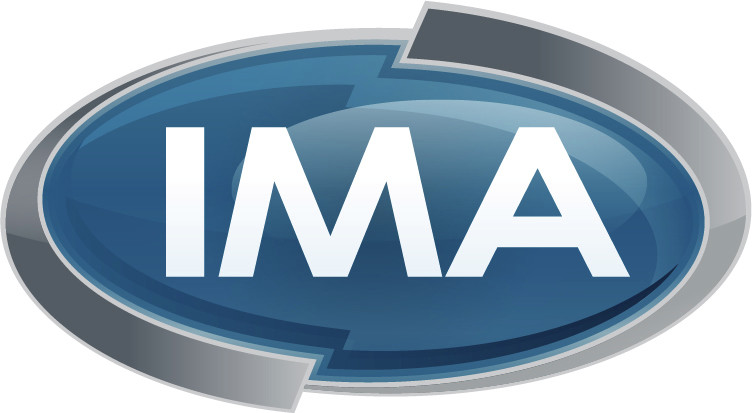Don’t be scared – Employee Benefits can actually make your business more efficient!
Are you a small business owner who’s grown to a size where employee benefits are now a legal hurdle, in order to grow further? Maybe you’ve gone with a broker and are caught in the minefield of implementation. Whatever your situation, you are probably just looking for someone to make sense of everything. Let’s see if we can’t do that for you in this very blog!
Welcome back to the ADDA Infusion blog. The aim here is to demystify various aspects of HR, give you some tips that you can start implementing in your organisation today and show you how our unique approach is set up to work with you and your business seamlessly.
So employee benefits then. Scary right?
Well in some ways, this is for good reason. When you’re talking about indemnifying your workforce and their families medically, as well as providing training and progression: things naturally get complicated fast.
- You’ve got to find a broker (and understand what they’re supposed to do for you)
- Which insurance carrier are you going to use – are they the best for your area? Do they offer nation-wide coverage? Which doctors do they use? etc…
- What kind of plan do you go for? A PPO? HMO? HSA? – pick an acronym!
You have to choose from a myriad of different options, while making sense of it all and then…you have to worry about rolling it out to your employees!
- Notifying employees
- Open enrolment
- Communicating the plan to them
- Getting them on the plan
- Supplementals: critical illness, accident cover etc…
Once you get all of this set up and in place for everyone; you’ve then got the regular, unenviable task of auditing the plan on an annual basis.

Given the apparent Herculean effort involved in all this, it’s no wonder that a lot of smaller businesses turn to PEOs (Professional Employer Organisation). A PEO will handle all of this for you and provide some basic HR policies and procedures.
Now this apparently offers employers a magic bullet, right?
“I just consolidate everything with you, you run it all and I don’t have to worry. Ever. Again!”
Not quite.
PEOs can come with a lot of hidden costs as well as, more often than not, meaning that your employees do not sit on your FEIN number. This not only reduces your control, but also can have tax implications.
At ADDA Infusion we have partnered with top-level brokers in order to offer solutions for our clients. We want to make sure that these offer them exactly what they need, within budget and maintaining full control.
We sat down with Insurance Broker Galen Young of IMA Financial Group, to ask him some important questions around employee benefits and what a brokerage actually does!


So brokers then, what do they actually do?
Well, in the past they simply found you the best insurance deal for your employees and their families. While that is still a core component of what they do, they have (the good ones anyway) evolved into being more strategic partners for firms. Now they also offer compliance assurance, making sure that the needs of your employees are met in as financially efficient way as possible.
Ok – so you’re a small business owner, you’ve reached the point at which you’re legally required to implement employee benefits…what do you do?
What we’ve found, especially in the small business market, is that businesses offer benefits to their employees; not because they have to, but because they want to. Even right now, during the COVID pandemic: looking for and offering employee benefits is a competitive advantage.
Remember that employees don’t go to work at one size of company. They look for the job that offers them the work-life that they want, with the benefits that they want. We work with companies, big and small, to ensure that they use employee benefits strategically to attract and retain the best talent for their business.
What do you think are the key/core benefits are, that small businesses should start out with?
Well start by looking at what your vertical is offering. What do I mean by that? Your space and demographic. What are the other people in your industry offering their employees?
Obviously most will be offering medical insurance. That’s the corner stone of all employee benefits. Beyond that it’s things like: exit interviews, stay interviews, dental, retirement, student-loan repayment, tuition and so on.
These can all look different, depending on the type of company you are. You might be a tech-focussed business, hiring from prestigious colleges. So your employees will likely come with very specific types of student/tuition loans, that you could offer to pay off for them.
This is why choosing the right broker is as important as all the rest of it. You need to be partnered with a company that can bet serve the specific needs of your business, do so in a cost effective manner and provide you with the competitive edge.

Ok let’s get down to brass tacks: what’s the average starting cost for a business looking to implement employee benefits for the first time?
Well of course very company is different and I’d always encourage a bespoke approach in order to meet your needs. But I’d suggest really focussing on which employee benefits will most give you the competitive edge over the competition.
Things will look very different between a construction company say, and a more white-collar outfit. The aim is the same though: attract and retain the best talent possible.
Now as you’ll no doubt be aware: once you have over 50 employees for more than a year, you’re legally obligated to offer them “affordable contributions”. Broadly speaking, this is about 9.5% of an employee’s salary.
Now this has various moving parts, but we are able to help identify the line below which their contributions can not fall, and make sure that they have the most efficient way possible to remain compliant with that.
So what are some of the practical ways that a brokerage like IMA can help mitigate the costs of implementing employee benefit contributions?
Well we focus our efforts on being flexible and catering to the specific needs of our clients. A lot of the people we work with, who have previously used PEOs have benefitted greatly initially from the time/money savings that they afford, but then quickly realised how inflexible they are thereafter.
At IMA we have often been able to save clients time and money, simply by being able to better fit with what they need and retaining their control at the same time. PEOs will typically place you and your business into a ‘box’ with a one-size-fits-all approach, locking you into their way of doing things and also locking you into their rate rises.
This is not to knock PEOs entirely. Their inflexibility means that they can be more reactive and provide quick solutions. But longer term (after one or two years) they really can become very inefficient.
Any good broker should be able to work with you to tailor your deductibles, plan design and funding model, to best suit your needs.
How many people do you see actually get to the ‘out of pocket’?
We typically see over 50% of medical plan utilisers not reach their deductible and an ‘out of pocket’ maximum situation. Looking broadly at the USA as a whole: most people are over-insured.
We really encourage employers to help their employees assess their personal risk as objectively as possible. It’s very easy to over-estimate risk, and obviously we’d want to make sure that people are covered; but there are still efficiencies that we can create for you that provide the right cover, while bringing down cost.

So if I have signed up with a PEO, for example, but I’m finding it inflexible and costly; can I switch to brokerage?
Absolutely. There are ways and times to do it, but you can certainly have that conversation at any time of the year. A good broker consultant should give you the best advice on when, strategically, it’s a good time to make that switch. Whether it’s because of what will help employees best, the tax implications, when plan renewals fall etc…
Lastly: how are IMA different for the competition?
Well I’m biased, let me say that up front, but I truly believe that we are a lot more client-focussed than a lot of the other companies in our sphere. We’re employee owned and independent. Our incentive is to help our clients thrive because when they do – we do!
We also have a charitable foundation that gives back to all of the local areas in which we operate.

So there you go! I hope that helps give you a better understanding of what brokers do and how they can help you provide the best employee benefits, while also maximising efficiency.
If you’d like any more guidance on setting up employee benefits packages, whether for the first time or to improve your current plan: please reach out to us via our contact us page. We’ll be more than happy to help.
If you’d like to talk to Galen Young, or another member of his team, you can contact IMA here:
Toll Free: 800.813.0203
1705 17th Street
Suite 100
Denver, CO 80202
303.534.4567
Thanks as always for checking out our blog. If you’d like to see the full video, including the interview with Galen; please check it out below:









